How To Promote and Run a Book Launch
How to Promote & Run a Book Launch
A New LWS How-to Article Has Arrived!

Website by Wallace & Moody


Website by Wallace & Moody
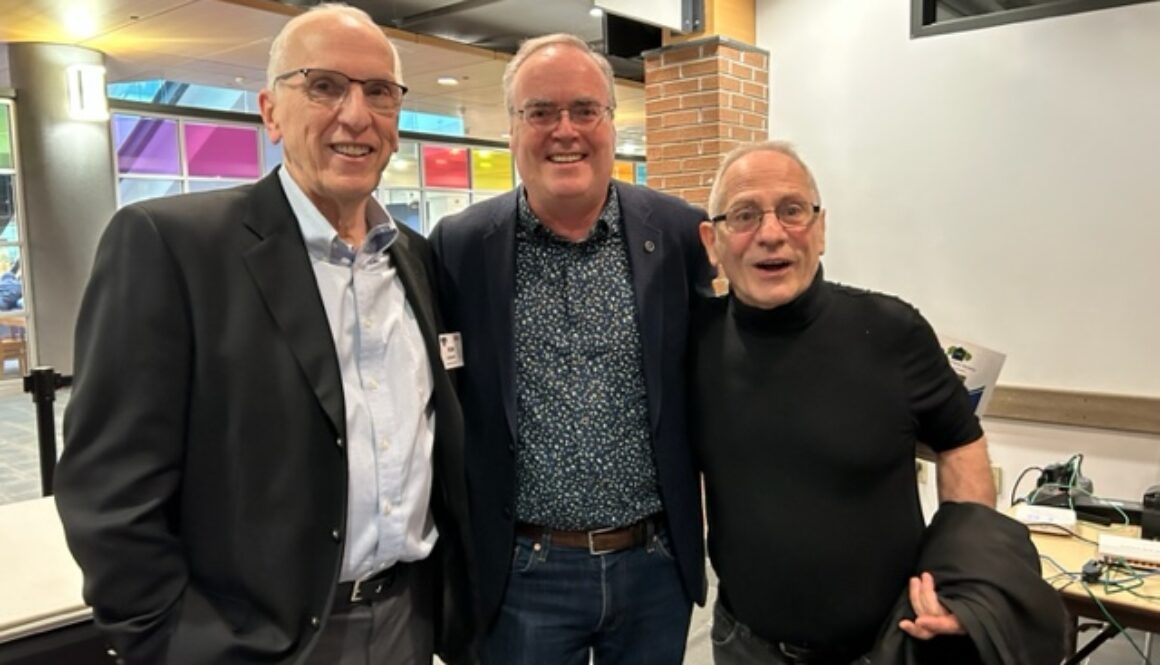
Below is a snippet from a recent blog post by Terry Fallis, posted to his Substack, in reference to his time with the London Writers Society during our “An Evening with Terry Fallis” event. Terry sings praises and comments on the power of connection. (You can see his full post here.)

Website by Wallace & Moody
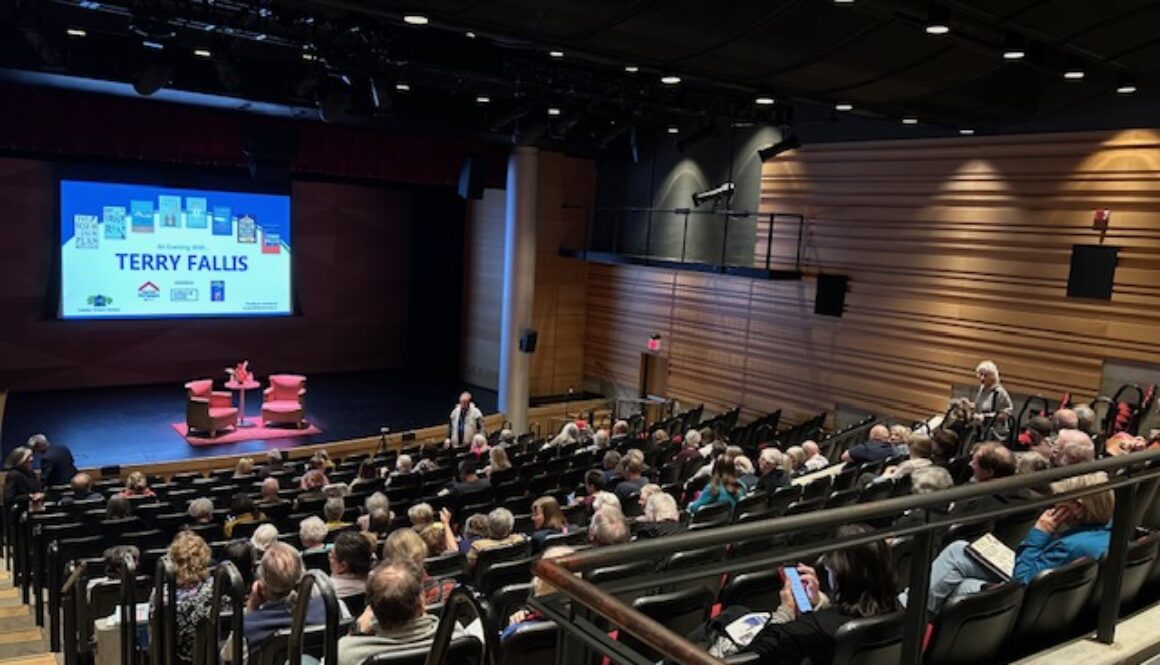
Below you’ll find a collection of photos, taken by Anne Kay, during the “An Evening With Terry Fallis” event on May 8th, 2023. Anne was our roving photographer that night and did a great job!

Website by Wallace & Moody
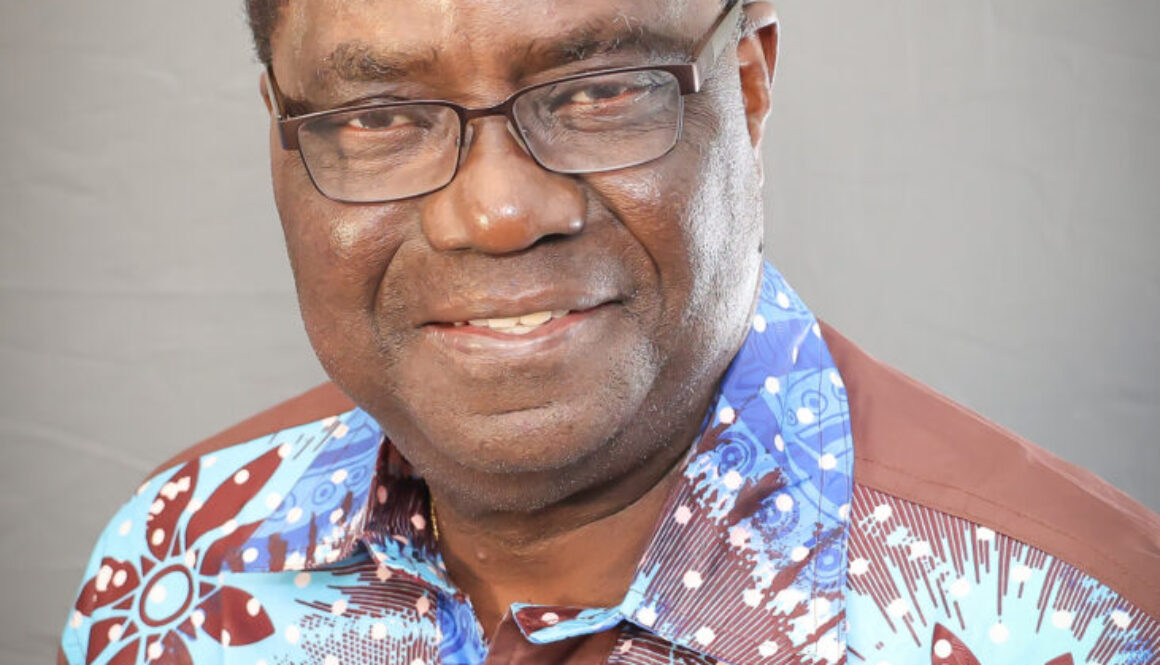
They look around in every direction
For the sparrow to feed on!
Incredible cry, stifled sorrow, stunned look.
The unquiet, enfeebled heart pounds frantically
– The heart of the undocumented one
Who breathed the air full of dust
Blackened by toxic, killer smoke
Spewed out by an unfair firearm.
Pity!
He, a spirit of the north, south, east and west
Without color, language, gender or motion
– A spirit all the same, in the middle of nowhere,
Far, far away, where stars pass one another
At the station perched high amidst somber clouds
Rising from the scandalous degradation of the ruins.
Behold him, the Orphan,
Emerging like a sparkless lightning bolt:
Colorless, soulless, but protected by a shell
Capable of withstanding the bite of every snake
Residing in the heads of those wandering raptors
– Without mercy or luminosity
Wrapped in unwarranted authority
And looking around in every direction
For the sparrow to feed on.
Pity!
Undressed, the Orphan runs everywhere in despair
Inviting shimmering, kindly glances.
He loses his fruitless, frantic race.
His head and legs are twisted
Into a noncommittal circle, not unlike
The work of the brainless monsters
Who look around in every direction
For the sparrow to feed on.
Scared, the Orphan roams about, saying nothing,
Like a butterfly flanked by a swarm of gnat larvae
– Bearers of a troubadour’s encrypted messages
Humming songs as if they were dirges
Along smoldering walls
Whose commingled muted echoes
Are replicated a thousand times
And buried in a distant suburb.
Yes, a suburb sulfurized
By the ocher of the sands of the Sahara
Far from my abode,
Me, the Orphan with the voice
Which whispers in the deaf ears
Of those ignorami blind from birth
Who look around in every direction
For the sparrow to feed on.
Pity!
Far from the stares rendered sightless
By the smoke snaking out of the babbling bush
Where hatred of the last century is hatched;
The century out of whose shadow
Sprang that nameless monster,
The one with sharpened teeth in his mouth,
The Orphan is nauseated…
Yes, nauseated by the trash
Thrown up by the chimneys
Of those gas chambers of a bloodless world
Stammering out the slang of a certain tongue.
Fancy that!
Watch my shadow buried in the brain
Of this eagle – the spy whose variegated wings
Are stuck with pins;
He who flies from ocean to ocean,
Soaring high with my laundry,
My only clothes, which an angel gave me
And I have washed countless times;
Clothes soaked in unscented blood,
Which issued from the surprising brawl
Fomented everywhere by barbarians,
Barefaced, self-centered barbarians
Raring to charge,
Looking around in every direction
For the sparrow to sting!
Dispirited and naked, the Orphan flies high
Without any hope of finding a peaceful oasis
Or a manor totally out of view
Where he can camouflage his body
– The eagle having vanished with his clothes
Way up, up to a boundless place.
Pity!
A place, at last, where,
Moved by God’s mercy,
Heavenly birds kill time
In this warped, ruined world.
Amidst ashes embedded here and there
In deaf, one-eyed floors,
The Orphan hears a voice
In cadence with the frenetic rhythm
Of the chant hummed a thousand times
By a nightingale, which implores and leers
Day and night.
Yes, he watches with pity and compassion
Those at the helms of nations
Purported to be wealthy
In this age besotted with selfishness.
With peace time consigned to silence,
The Orphan feels drained, disillusioned
And deprived of any hope
For a healthy future
Dedicated to justice, love and peace
In a happy world.
In spite of that, he defies fear
The passage of time, and the gravedigger.
Translated from the French by Raphael Sóne.
Gaston is an Electrical Engineer (University of Kinshasa in RD-Congo) with a doctorate in Applied Sciences, specializing in Optical Fibers (University of Ghent in Belgium). Dr. Mabaya has had a diverse professional career as a university professor, as Honorary Dean of the Polytechnic Faculty of the University of Kinshasa, as a researcher and international consultant, as a writer in French and English, and as a Permanent Deacon in the Diocese of London, Ontario. Dr. Mabaya was named to the 2011 Mayor’s New Year’s Honour List for outstanding contributions to Diversity & Race Relations in the City of London.
The author of several books, Dr. Mabaya, is passionate about literature and education.

Website by Wallace & Moody
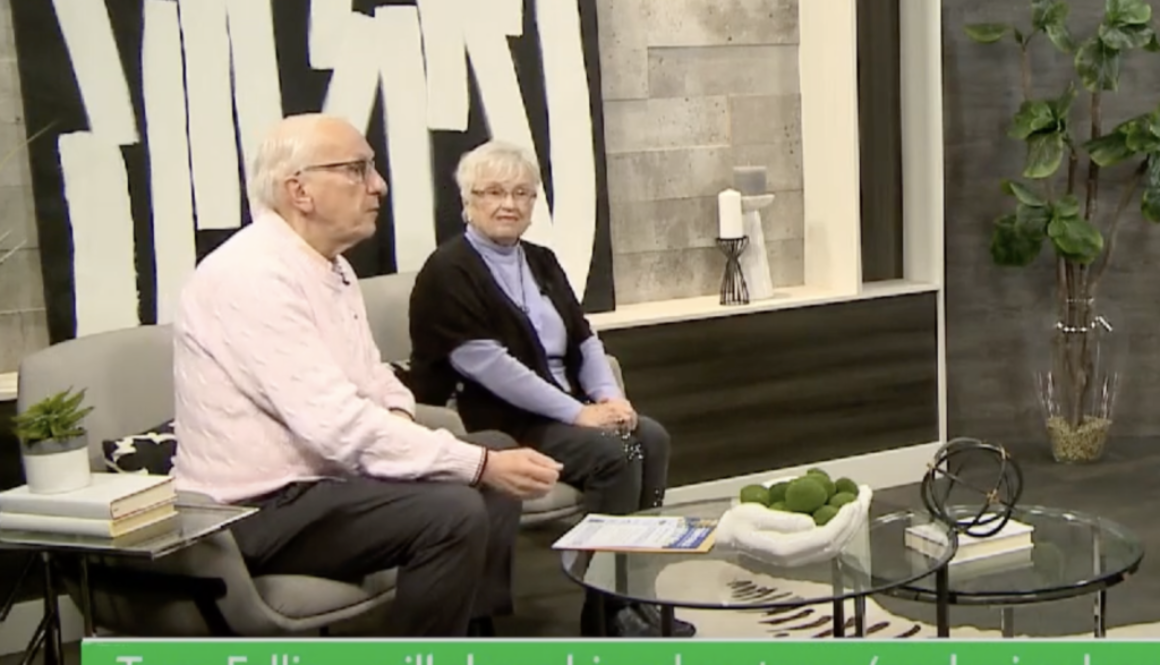
Special thanks to Jen Slay, and the team at What’s Up London, for hosting Ron and Elaine Cougler!
Ron and Elaine did a great job talking about the LWS, how we’re growing and looking to serve our London-area writers, as well as promote our upcoming event, An Evening with Terry Fallis.
You can see the interview by watching the video below (Ron and Elaine’s piece begins around the 15:15 mark).

Website by Wallace & Moody
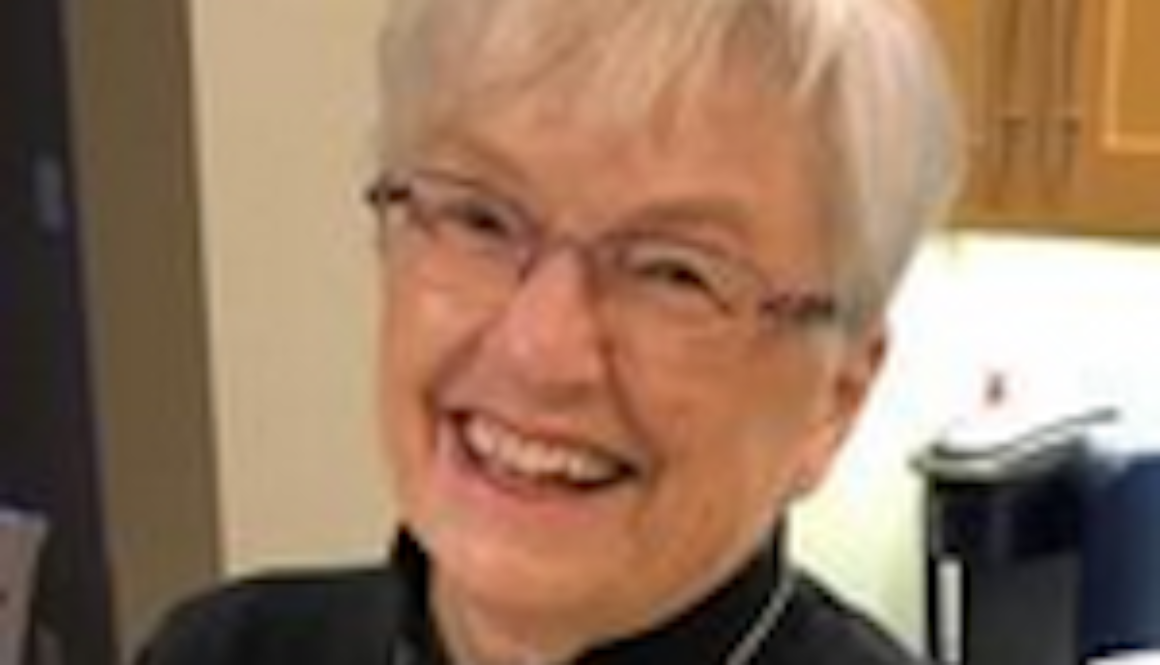
When I first felt coming from deep inside me the call to write books, I absolutely wanted to be traditionally published. All the books I read were put out by publishing companies, and serious writers simply followed the well-trodden path.
Or so I thought.
Over the six years my first book took to reach its audience I went to writing conferences across Canada and the United States. I joined writing groups, critique groups, and even a couple of weekend writer retreats. And at those events I learned everything I could. How? I asked questions. After a writer’s workshop I always found my way to the front to establish contact with the speaker. We exchanged emails. I went home and wrote blog posts to pass on all I had learned in their sessions. And I implemented what I had learned.
For the most part this worked well. I began to feel like I could actually call myself a writer and, now and again, was moving toward using the exalted term author. I didn’t feel comfortable with that until I was published, however. Strangely, once I was published, I used the terms interchangeably and had no problem thinking of myself as either a writer or an author. Funny how the mind works.
I learned to write and send query letters and experienced the frustration of hearing nothing from almost every one of those letters that went winging via snail mail out into the universe. One person in Toronto who has an agency there read my draft manuscript and sent me a nasty critique. He basically said the first 100 pages of my book were crap. My friend worked with that gentleman for many years and still has not had any of her books published. And they’re good. I’ve read them. She got caught in the agent dilemma of them wanting something fresh and new but not knowing where to sell said new ideas. I, having been a voracious reader all my life, decided to trust my instincts and move on. During that period, I must have rewritten parts of that book about 10 times, trying things on for size, crossing them out, starting again, rewriting ad nauseum until I finally felt I had a great product.
Then I found a professional editor and went over her suggestions. I didn’t always agree with her thoughts but between the two of us we got that first manuscript ready to go out and meet the world of readers. For my next book, The Loyalist’s Luck, I instituted my beta reader system. By this time I knew a lot of clever and educated readers who were anxious to help out. I called them beta readers. Once I got their comments about my manuscript back, I worked through all of the suggestions. Most were excellent and I remain very thankful for those readers. Other suggestions didn’t work, and I became comfortable knowing the difference. Here was where I had to put aside all of those voices who said writers always need to pay an editor. Don’t trust yourself, they said. But it wasn’t until I had a couple of books under my belt that I began to realize my own unique abilities.
I also learned a couple of techniques that serve me well. When each beta reader’s comments and suggestions come in, I pay a lot of attention to them. I especially love those from my favorite grammar guru who finds things even I have missed. Strangely, after I have gone through all of their edits—I have nine beta readers for my current book—and think I’m finished with the process, I let the manuscript sit for 2-4 weeks, depending on my schedule. I always find a few things that have been missed in the earlier readings. That rest from the manuscript gives me fresh eyes and a clear brain, allowing me to read what my readers will read without any spill over from what my brain has kept from earlier readings. It’s like washing the chili pot out well before I make a new recipe.
I am a word person. I was the only person in my large high school who did not take Physics or Chemistry and who took only languages in Grade Thirteen. (Yes, they had that back then!) I took English, French, Latin and German and had Royal Conservatory music credits to complete my diploma and go on to Western. That all tells you that I am a language person. I know my grammar, I spell well, I love to read aloud and hear the cadence of the words while I am digesting their meaning.
In my professional life before I jumped into writing with both feet, I taught high school French, Computers and English, even becoming the Assistant Head of the English Department in my high school. Again those courses were leading me toward becoming an author once I left the Thames Valley Board. And the years of helping students say with their words what their minds were aiming for helped me with my own writing journey.
I went to a writing workshop in Niagara Falls put on by an American from California and that is where I got my title for my first book. I had called it Loyal to the Crown. The group there hated that and someone suggested The Loyalist’s Wife. I liked it. The Loyalist series was born. I also met some amazing people at that conference. Toronto writer Barbara Kyle was there and the inimitable Stephen Leacock recipient, Terry Fallis. I talked in group sessions to them and again socially in the evenings. Later I took a great course with Barbara in Toronto and Terry wrote a wonderful quote for the back of my first book.
In Victoria on a visit to my daughter I went into Island Blue and talked to the owner about my book. Face to face, I liked and trusted this man, and the way to getting The Loyalist’s Wife published and out to the world became clear. That led me to their cover designer who did and still does terrific work. For the whole trilogy I used their services, an arrangement that worked well for all of us.
I kept going to writing events and meeting people and asking questions and learning. I drove to Ajax/Oshawa once a month for meetings of WCDR, the Writers’ Community of Durham Region. My husband accompanied me and did his own thing while I was at the morning breakfast meeting. Then we would lunch with a bunch of writer friends. I looked forward to those long Saturday morning drives and the exciting things I learned at every one of them. When I had two books written, I had a sales booth at the meetings and even did some book events in the Toronto region because of my connections there.
The takeaway from all of this is simple. We writers all bring unique talents to the job. What I have learned is to spend money on the things either I don’t care to do or that I’m not any good at. I don’t do my own cover designs although I certainly have the final say once I’ve digested what my cover designers put forth. They know more about it than I do so I pay for their knowledge.
I am not very interested in learning how to set up my books in InDesign or other similar programs (even though I am pretty computer literate) so I am happy to pay for an interior book designer. If I’m lucky one of those people, once the final file is ready, will walk me through uploading to Amazon my books in print, e-book (Kobo and Kindle) and even audio versions to Audible. That reminds me of my audio engineer. I found him years ago, he knows his stuff, is easy to work with and we have a great time recording the books in his studio. Yes, I read them myself and that sometimes leads to some great laughs at my mistakes. Once in a while, I get to laugh at his, too, so it all works out.
People tell me I’m a good marketer. I can always see many more things I could be doing, though, so I keep working at it. It’s lucky that I love to go out and speak about my books at events. I sell a lot of books that way and I get to meet some fabulous people. Right now I am investigating putting my books on another sales site with completely new readers. I’m also thinking of reissuing my Loyalist series complete with new covers.
The thing about self-publishing is that I get the final say. I’ve had other authors tell me their traditional publishing companies don’t give them any say in things like the cover. One even told me she hated the cover for her latest book. I can’t imagine spending two years on a book and then not liking how it looked at the end. I get to proofread the final copy and find any lingering errors. Of course, it’s my fault if I miss some but that’s the price I am happy to pay. If you are one of those who has been courted by a reputable agent and publisher, go for it. Just remember you’ll still have to do most of the marketing but you won’t receive nearly as much of the proceeds from your books.
If you are a person who does not have that perfectionist gene (one I’ve been accused of having), you’ll probably have to make friends with a good editor. Treat them well. They are invaluable as we readers hate to find grammar, fact or structure errors when we’re reading. We don’t want to be distracted from the story by the wrong word or by atrocious spelling. Get help. Again I say that each of us has a unique brain. Learn what your skills are and go with them. You might be a terrifically creative writer with amazing plot twists and unique characters. Write your books but get help with the editing. Readers will thank you for it.
Amazon #1 Bestselling Author Elaine Cougler likes to create characters who rise up and fight when faced with impossible situations. Her historical fiction and her biographical books praise the indomitable spirit of amazing human beings both in our time and through the annals of history.
She is a former high school English teacher and lifelong performer, singer and parent who survived all of that to take up writing in a serious way. Descended from Loyalist and Pennsylvania Dutch ancestors, Elaine is one of thirteen children—yes, thirteen—and was raised in a post-war Ontario farming community by parents who expected the best from their children and consistently helped them to achieve.
See her full collection of works at www.elainecougler.com.

Website by Wallace & Moody